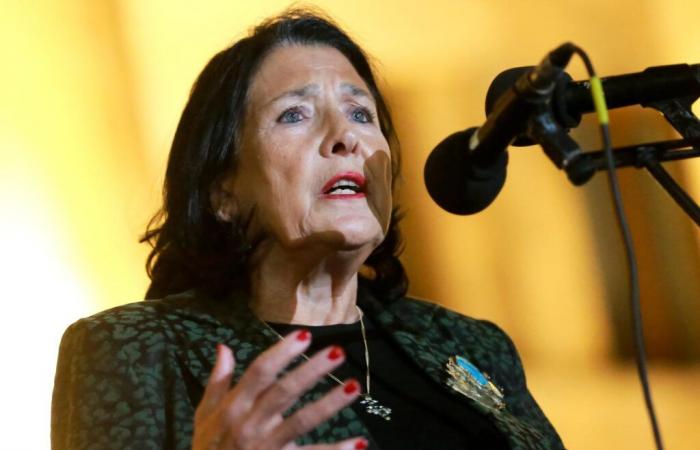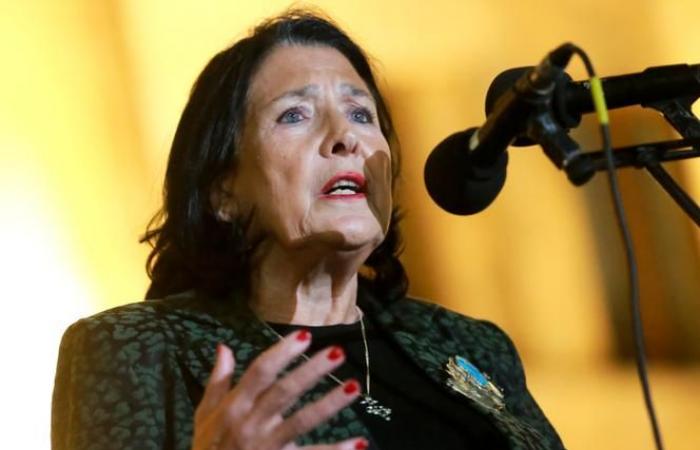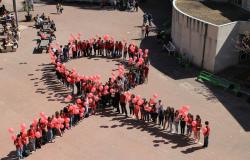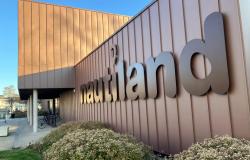In conflict with the government, the Georgian president, Salomé Zourabichvili, called on Monday, November 11, for new legislative elections to be held after the victory, in October, of the Georgian Dream, the ruling party, denounced as fraudulent by the opposition.
The pro-Western opposition in this Caucasian country refused to recognize the result of the legislative elections which ended with the victory of the Georgian Dream, pro-Russian and accused of authoritarian drift by its detractors.
The Georgian president, who has limited powers and influence in the country, denounced during a press conference a “election controlled and manipulated by a single party”in reference to Georgian Dream. “Today we are facing a crisis”she assured, affirming that it was necessary to organize “new elections so that Georgia can have a legitimate Parliament, a legitimate government”.
Read also | Article reserved for our subscribers The ambivalence of Europeans in the face of the contested legislative elections in Georgia
Read later
“Serious suspicions of fraud”
Mme Zourabishvili, who accuses Russia of electoral interference, revealed that a group of MPs from eight European countries, including France and Germany, are in Georgia to help with the “search for ways to get out of this crisis”. The President of Parliament, Chalva Papouashvili, refused to meet this delegation.
The European Union, which Georgia aims to join, has put pressure on the government of this country since the legislative elections on October 26. On Friday, the President of the European Council, Charles Michel, assured that“there are serious suspicions of fraud, which require a serious investigation”.
Tens of thousands of demonstrators took to the streets of Tbilisi to protest against alleged electoral fraud. The ruling party, for its part, insists that the vote was free and fair and that membership of the European Union remains “top priority” of his government.
Read also | Article reserved for our subscribers Georgia: the legislative elections of October 26 “do not reflect the choices of the population”, according to local observers
Read later







